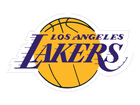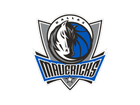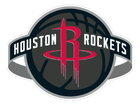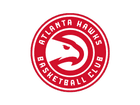
LeBron James reflects on Trayvon Martin's death
Trayvon Martin was just 17 -- the same age LeBron James' oldest child, Bronny, is now -- when he was shot and killed by neighborhood watch volunteer George Zimmerman 10 years ago this week. James' response to Martin's death -- including a famous tweet of the Miami Heat with their hoodies pulled up -- was the start of a public commitment to social activism. "Until you know who you are, it's hard to speak for other people. Or speak for anything. You got to be comfortable with yourself," James told ESPN earlier this month when asked about Martin's death. "I think it's unfortunate that we, as a society sometimes, we want certain people to talk and we want certain people to [take on issues]. Like, 'Why aren't you speaking for [this community]?' I think for me, when I was younger, I wasn't in that position to do that."

James was 27 at the time and had yet to win any of the four championships he went on to earn with the Heat, Cleveland Cavaliers and Los Angeles Lakers. James, who appeared on the cover of Sports Illustrated with the headline "The Chosen One" at 17, was drafted with the No. 1 pick out of high school at 18 and had his signature Nike sneakers flying off the shelves by 19, was still figuring out life in the spotlight after his controversial "Decision" made-for-TV special followed by his first season in Miami ending with a disappointing NBA Finals loss to the Dallas Mavericks. "I grew," James said. "I grew. And as I grew to know who I am, to know what I want do with my life, to know the family that I have, now I understand that my calling is to be able to inspire others and also be able to give voices to people that don't have voices."

"It's never going to stop," he said. "It's never going to stop, but that don't mean we stop. 'Can't stop, won't stop' is what Diddy says. At the end of the day, we know the turmoil and everything that's going on. They're going to look at Black people how they've always viewed us: Smile in our face and [act like] it's fine. "But at the end of the day, we can't stop. We can't stop speaking up for things that are unjust. We can't stop speaking up about things that we feel are wrong -- or things that are right. And calling out people that literally are simply just bad people."

Haliburton, who grew up in predominantly white Oshkosh, Wisconsin, said his interest in Black history and social justice was initially sparked after 17-year-old Trayvon Martin was shot to death by George Zimmerman on Feb. 26, 2012. “At that time, I was 11, about to be 12 years old, and to learn about that and seeing the pain in my pop’s eyes,” he said. “You know, I had my parents having to sit me down and talk to me about the world that I was entering as a kid, really, that the world I was going to be entering. Yeah, I think that kind of sparked everything for me. And, it was hearing my dad have dialogue with people about that situation. I think that started me to really get involved in what’s going on.

Duane Rankin: A candid Monty Williams talked about having a dislike for hoodies at practice in the past because of the death of Trayvon Martin. Now hoodies doesn't bother him. Came to that revelation in when joining #Suns, saying they've embraced the culture, everything else is "negotiable."
Advertisement

Mark Cuban: George Floyd’s loss of life, it modified me. It actually did — listening to our African-American gamers discuss private experiences and seeing the ubiquity of all of it. Like, after Trayvon Martin’s loss of life, I talked about strolling down the road and the way I might cross to the opposite facet if I noticed a black child with a hoodie or a white bald man with tattoos coming towards me. That was my method of claiming: “I don’t see color. I try to evaluate each person individually, but I have prejudices that all people have.” I received’t say that anymore. Colorblind isn’t the best way to be. You’ve bought to acknowledge the variations. When folks discuss Black Lives Matter, they’re not saying white lives don’t matter; they’re saying that black folks and completely different ethnicities have been mistreated. And while you see any individual who’s mistreated, you assist them. That’s what I got here to comprehend.

Tim Reynolds: Harrison Barnes just announced a $200,000 gift to these charities: -Trayvon Martin Foundation -Botham Jean Foundation -Atatiana Project -Mothers Against Police Brutality -Michael Brown Foundation -Tamir Rice Foundation -Jordan Davis Foundation - African American Policy Forum

Alykhan Bijani: Austin Rivers would like to have ‘Trayvon’ on the back of his jersey, in honor of Trayvon Martin. #Rockets
Austin Rivers would like to have ‘Trayvon’ on the back of his jersey, in honor of Trayvon Martin. #Rockets pic.twitter.com/KCQSZV6QlI
— Alykhan Bijani (@Rockets_Insider) July 7, 2020
Advertisement

Temple, who has been studying for the LSAT during the league’s hiatus, is the son of Collis Temple, the first Black athlete to play basketball at LSU. Collis Temple received threats while playing for the Tigers in the early 1970s, and the National Guard was called in to protect him. As he got older, Collis Temple shared his experiences with his children. Those stories had a profound effect on Garrett, who has been active in the Black Lives Matter movement for years. The 6-foot-5 guard was in Los Angeles in 2013 when George Zimmerman was acquitted in the killing of Trayvon Martin and said he did not recall the acquittal eliciting a notable uproar there. But he said recently he’s seen a change in the movement after George Floyd was killed by a police officer in Minneapolis. “It made me angry that it was so foreign to so many people, or people just didn’t even pay attention to it,” Temple said. “Fast forward, it seems like people are finally starting to care about unarmed Black men being brutalized by the police and just Black Americans in general being marginalized.”

"The more the NBA understands that, the better everybody will feel about it, especially players. So I feel that us going down there and making sure nobody gets distracted is part of the initial correspondence. We have to go down there and make sure that people don't forget about George Floyd or Breonna Taylor or Philando Castile or Ahmaud Arbery or Trayvon Martin, which is in the Orlando area. And the list goes on, and the countless other people who were not caught on video who experienced something similar. "The bottom line is there's improvements that need to be made and the NBA has a great voice and a lot of resources and a lot of influence and we are appreciative they are helping in aiding in a lot of the things we care about. So that's really important."

There is, seemingly, no bottom. George Floyd wasn’t it. Breonna Taylor wasn’t it. Ahmaud Arbery wasn’t it. Rayshard Brooks wasn’t it. Just like Trayvon Martin and Tamir Rice and Michael Brown and Eric Garner weren’t it. And it gets to you, after a while. It got to Pierce, when he addressed his team on a Zoom chat a couple of weeks ago.
Malcolm Brogdon: A restless energy has consumed me for the past week, and initially I couldn’t figure out how to relieve it. I’ve witnessed protests over the past decade for Trayvon Martin and Mike Brown and all the other people suffering from excessive violence, but this one felt different. When I joined Jaylen Brown, a member of the Boston Celtics, last weekend to march with peaceful protesters in Atlanta, I gained a greater respect for the bravery and courage it has required for generations of leaders before us to stand up to their oppressors. With police flanked on either side of our crowd, the Georgia heat beamed and the fear was visceral.